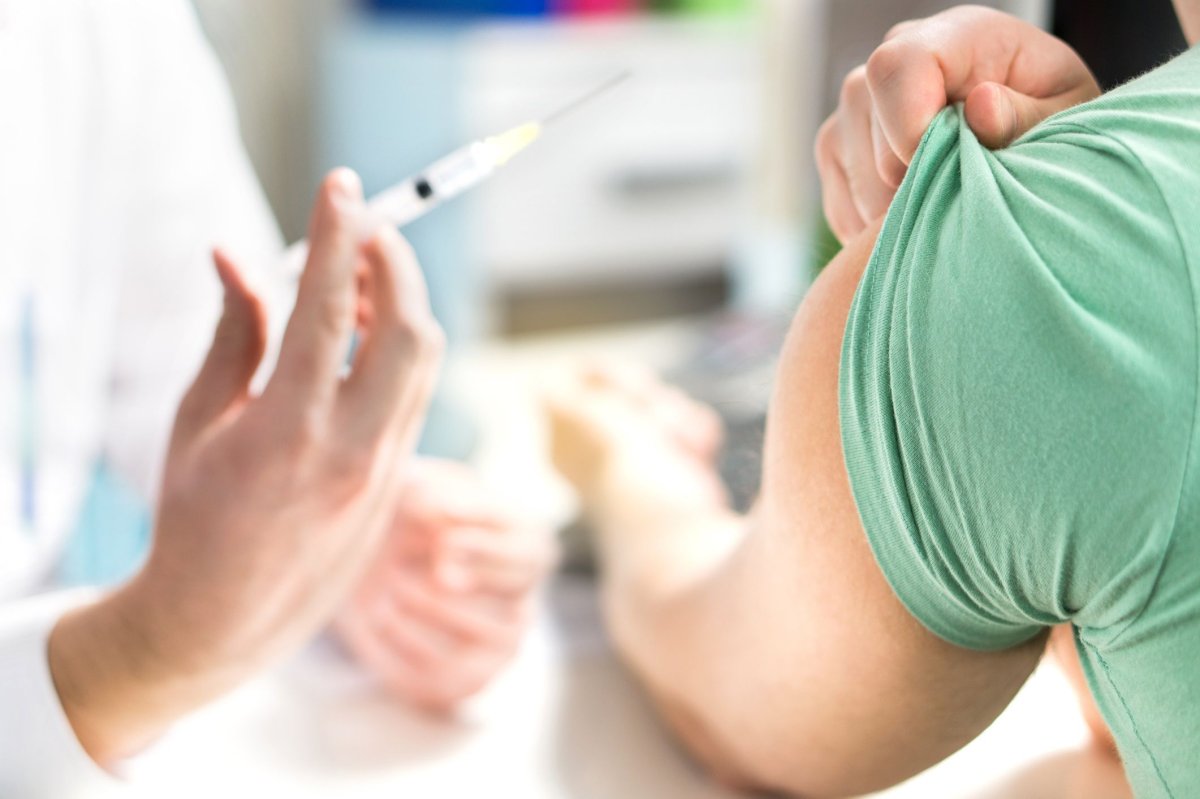Two Democratic lawmakers in New York state have proposed a bill that would allow minors who are 14 years and older to get vaccinated without the need for parental approval.
There is growing concern among experts that vaccine hesitancy—the delay in acceptance or refusal of vaccines, despite their availability—is likely fueling new outbreaks of easily preventable diseases, such as measles.
In fact, New York has recently experienced significant measles outbreaks in Brooklyn and Rockland County, even though the disease was declared eradicated in the U.S. about 20 years ago.
"We are on the verge of a public health crisis," New York State Assembly member Patricia Fahy, one of the sponsors of the bill, told The New York Times. "We've become complacent over the last couple of decades. It's not just the individual who is at risk when they are not immunized. You are putting other people at risk."
Fahy, who represents parts of Albany County, said that in some communities, inoculation rates were lower than the recommended levels, a phenomenon that is likely being driven by scaremongering about vaccines.
In both the Rockland County and Brooklyn outbreaks, officials have reported more than a hundred confirmed measles cases, many of which involve members of the Orthodox Jewish community, which traditionally has relatively low vaccination rates.
Some states, such as Oregon and South Carolina, already allow minors to receive vaccinations without permission from their parents. However, sometimes these laws include a provision that requires the minor to undergo an evaluation aimed at ensuring that they are mature enough to make the decision. The New York bill—which was also sponsored by New York state Senator Elizabeth Krueger—will not include such a provision if passed into law.
The American Academy of Pediatrics welcomed the new bill. "Young people are often more conscious about the misinformation on the internet and can in many cases disagree with parents who have bought into unfounded and dangerous anti-immunization diatribes and pseudoscience," the AAP said in a statement provided to Newsweek. "These young people have a right to protect themselves."
Just last week, a teenager who made international headlines after defying his parents to get vaccinated testified before Congress during a hearing titled "Vaccines Save Lives: What Is Driving Preventable Disease Outbreaks?"
Ethan Lindenberger rose to prominence after sharing his story of growing up in an "anti-vax household" on Reddit. "My mom did not believe that vaccines were beneficial to the health and safety of society and believes that they cause autism, brain damage and other complications," he wrote in the post.
"Although this has largely been debunked by the scientific community, because of that, I did not receive the majority of standard vaccines that an individual would receive, and in the past few months I've caught up on all my shots now that I'm 18," he wrote.
The idea that the MMR (measles, mumps and rubella) vaccine causes autism is often used as a justification by parents who choose not to vaccinate their children. This occurs even though numerous studies have found no evidence of a link between the vaccine and autism, including one paper published just last week in the journal Annals of Internal Medicine.
The idea originated in 1998 when discredited former doctor Andrew Wakefield published a paper in The Lancet linking autism and the MMR vaccine. The study has since been withdrawn from the journal and its conclusions thoroughly debunked.
Nevertheless, false information such as this remains stubbornly persistent and is easily spread over the internet through a dedicated network of anti-vaccine social media groups and websites.
Such is the scale of the problem that the World Health Organization recently listed vaccine hesitancy as one of its top 10 health threats facing the world in 2019.
While coverage of most recommended vaccines has remained relatively stable and high in the U.S. in recent times, the percentage of American children aged under two who have received no vaccinations has quadrupled from 0.3 percent in 2001 to 1.3 percent in 2015, according to data from the Centers for Disease Control and Prevention. Coverage tends to be lower in more rural areas and among those with significant numbers of uninsured or Medicaid-insured individuals.
And according to a recent study published in the online journal PLOS One, increasing numbers of people in certain "hot spots" around the U.S. now hold anti-vaccination views.
"Since 2009, the number of 'philosophical-belief' vaccine non-medical exemptions has risen in 12 of the 18 states that currently allow this policy: Arkansas, Arizona, Idaho, Maine, Minnesota, North Dakota, Ohio, Oklahoma, Oregon, Pennsylvania, Texas, and Utah," the PLOS One study authors wrote in their paper.

Uncommon Knowledge
Newsweek is committed to challenging conventional wisdom and finding connections in the search for common ground.
Newsweek is committed to challenging conventional wisdom and finding connections in the search for common ground.
About the writer
Aristos is a Newsweek science reporter with the London, U.K., bureau. He reports on science and health topics, including; animal, ... Read more
To read how Newsweek uses AI as a newsroom tool, Click here.








